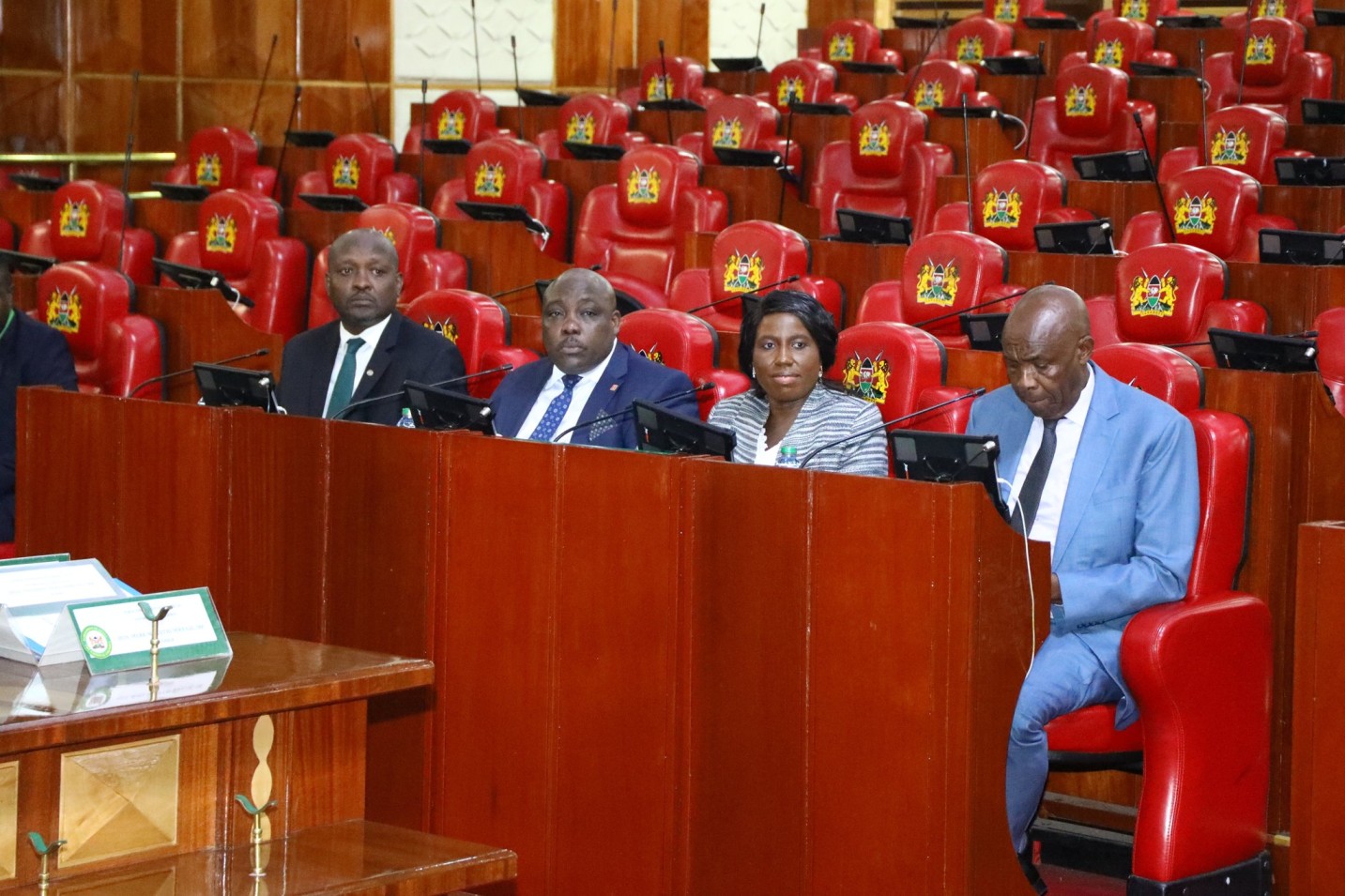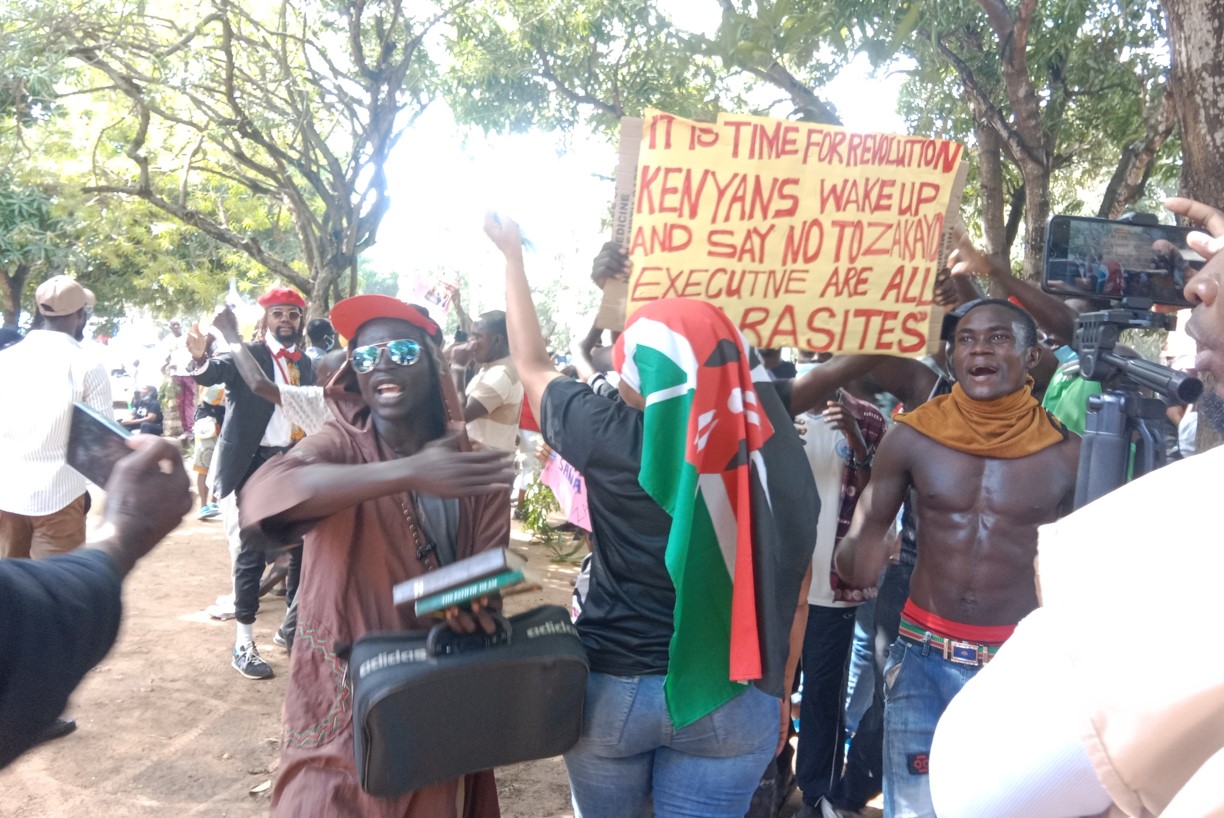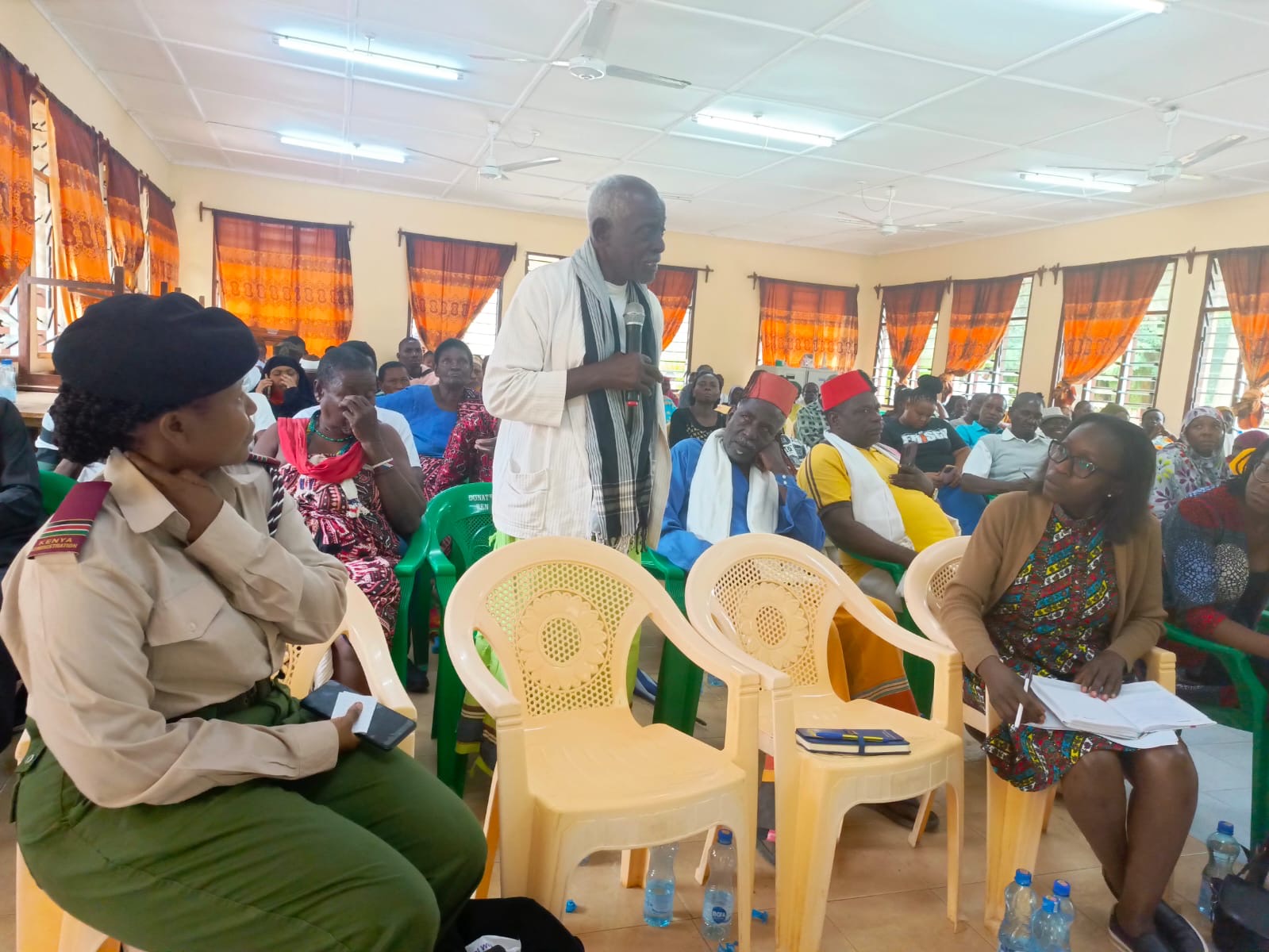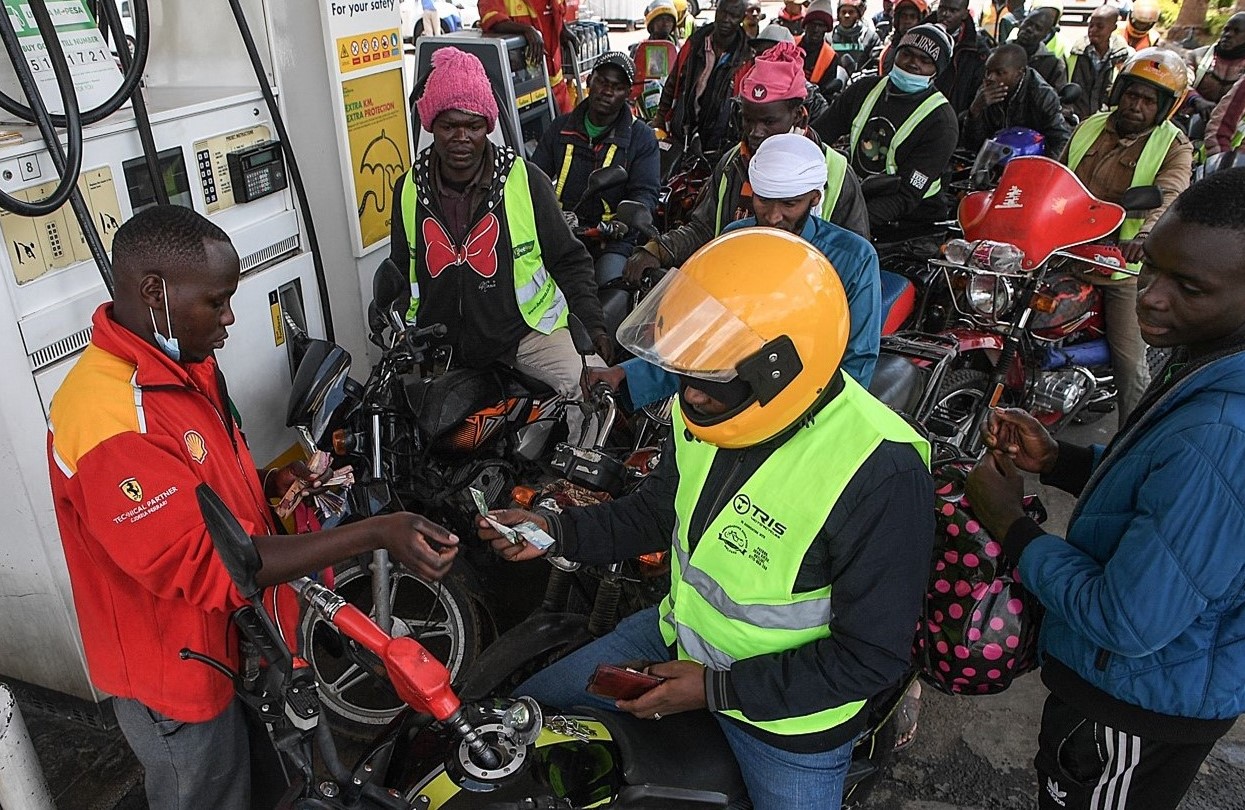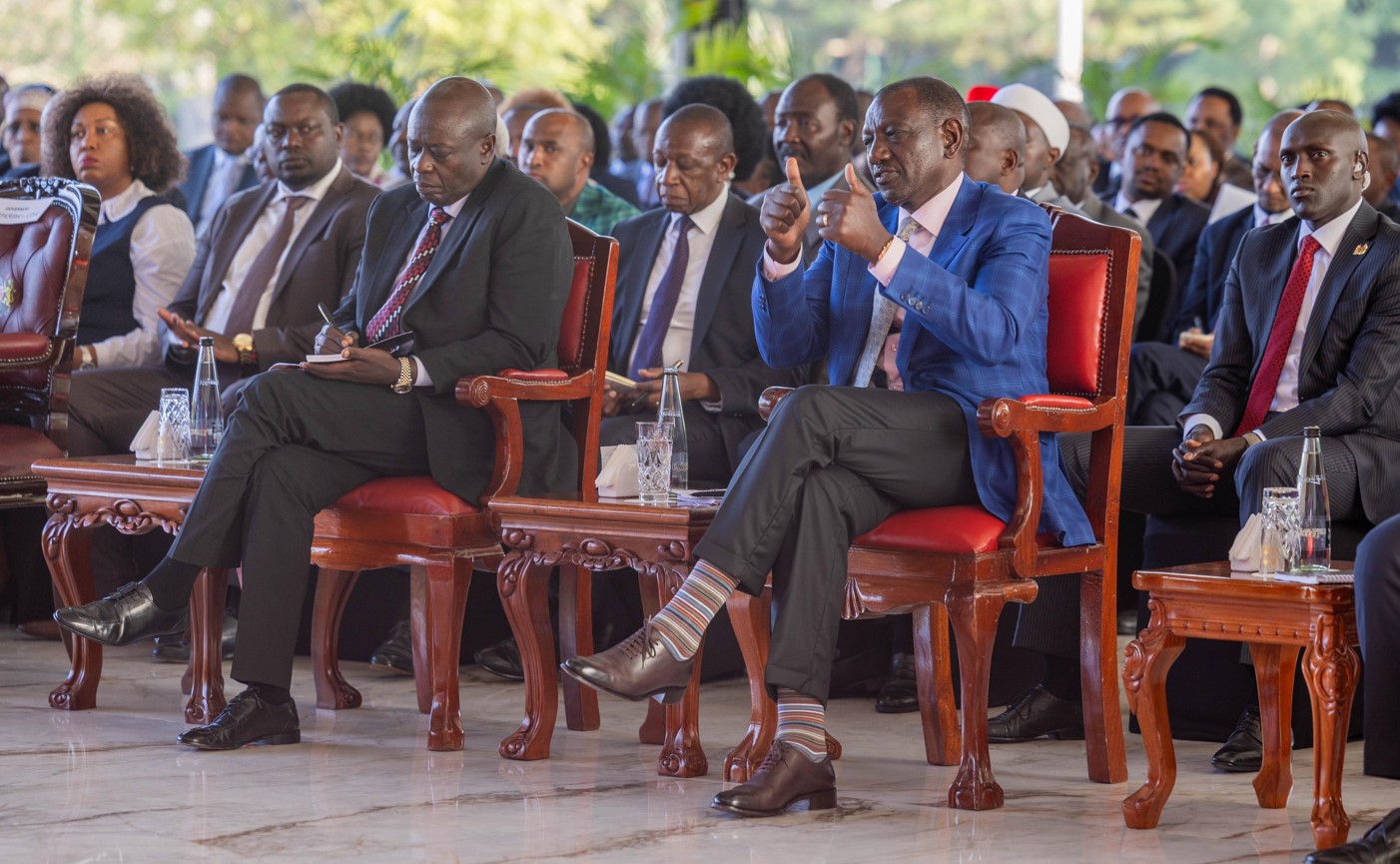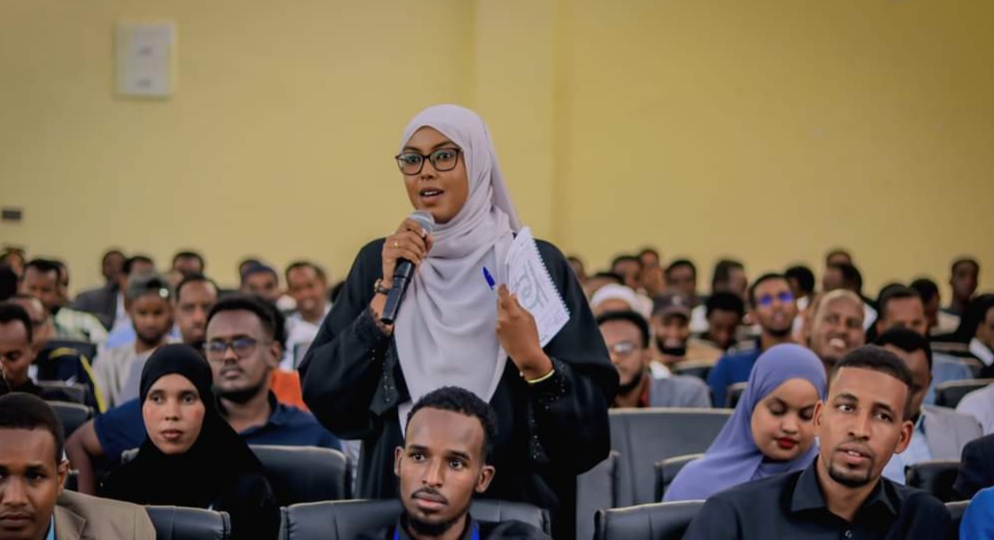Sweet relief: Women's juice factory targets exploited mango farmers
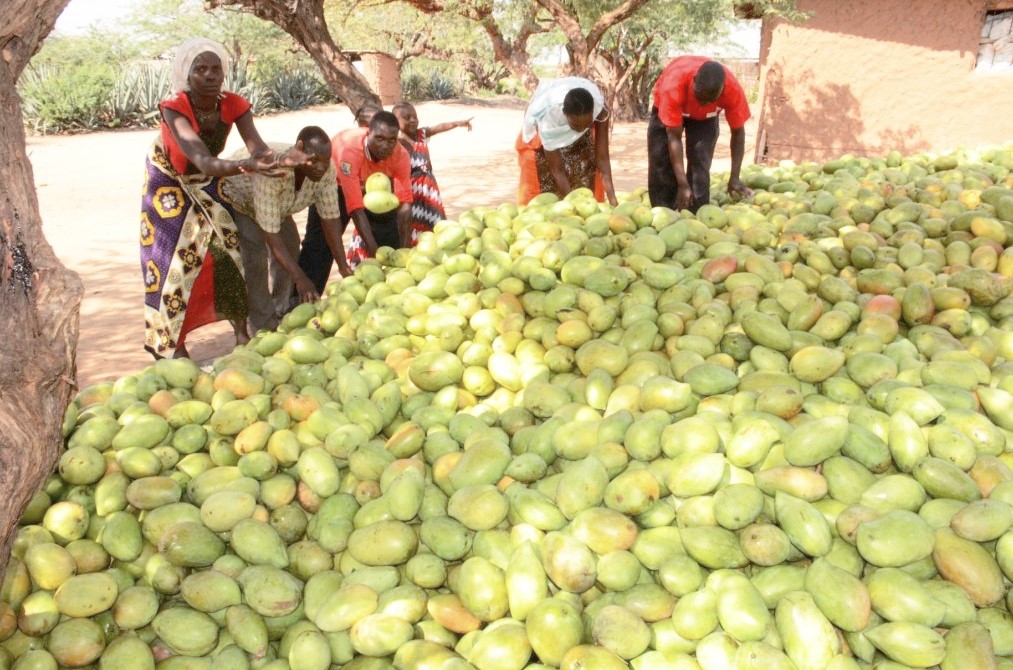
By Farhiya Hussein |
The group buys mangoes from farmers at Sh10 apiece, unlike middlemen who pay the same amount for three mangoes.
For decades, mango farmers in Tana River County have suffered from exploitation by middlemen.
Whereas a mango fruit sells for an average of Sh25 in the market, the middlemen who throng the villages during the season of plenty insist on buying it for just one shilling.
Keep reading
This has disadvantaged mango farmers who barely enjoy the fruits of their labour, hence the need for a better market.
To fight the exploitation, a group of women — under Elimika Women's Group which was started in 1993 — ventured into mango value addition by processing juice, packaging it, and selling it to shops in Tana River.
The group started with 30 members who were cultivating cereals and vegetables which they sold at local markets and used the income to build mud houses which they rented to local teachers.
Its membership grew to 286 members, but tragedy struck in 1998 after heavy rains caused by the El Nino phenomenon washed away their farm, leaving them with nothing to sell.
As they were planning a comeback, inter-ethnic conflicts erupted in 2012, and the group lost most of its investments. Some demoralised members left the group, leaving only 13 women.
The 13 women reconvened in September 2013 to reignite their vision after an encounter with researchers from the Jomo Kenyatta University of Agriculture and Technology (JKUAT).
"We had just sat and thought we should do something different this time. We did not know what it was even after a whole day of discussions. Then came JKUAT to one of our meetings and they enlightened us on value addition," Salma Galgalo, the group's secretary, told The Eastleigh Voice.
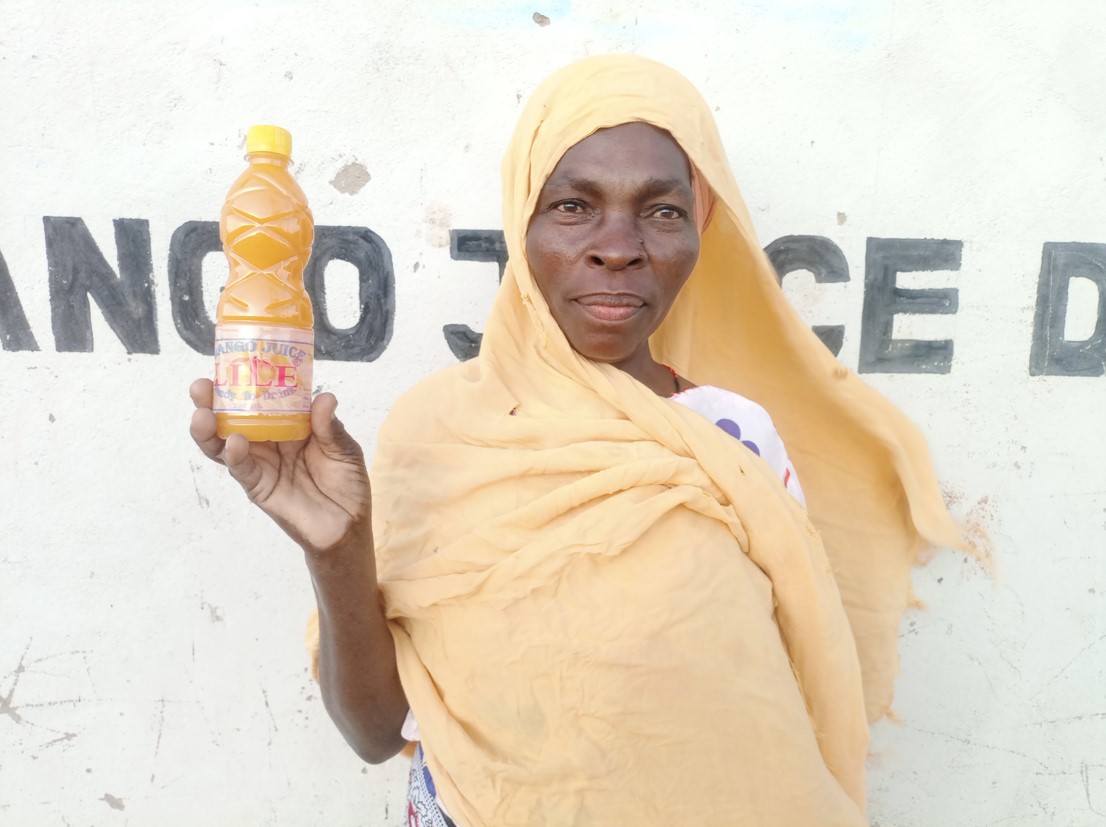 Salma Galogalo displays the final product made by Lile Juice Manufactures Limited a company founded by Elimika Women Group in Kumbi Village, Tana River County. (Photo: Farhiya Hussein)
Salma Galogalo displays the final product made by Lile Juice Manufactures Limited a company founded by Elimika Women Group in Kumbi Village, Tana River County. (Photo: Farhiya Hussein)
By then, middlemen were reigning supreme and farmers had to sell their produce to them as they did not have an alternative. Their only other hope, Galole Fruit Processing Factory, was not showing signs of starting operations soon.
First juice production
Luckily, the group received a machine from UNICEF and started their first juice production.
First, they shared a sample of what they had made with residents and shop owners to seek their opinions.
The feedback was good, as most people found their product good enough to compete with others in the market.
"We focused on originality, the smoothness of the drink, making sure that the taste and the aroma of the fruit itself blended well," Salma said.
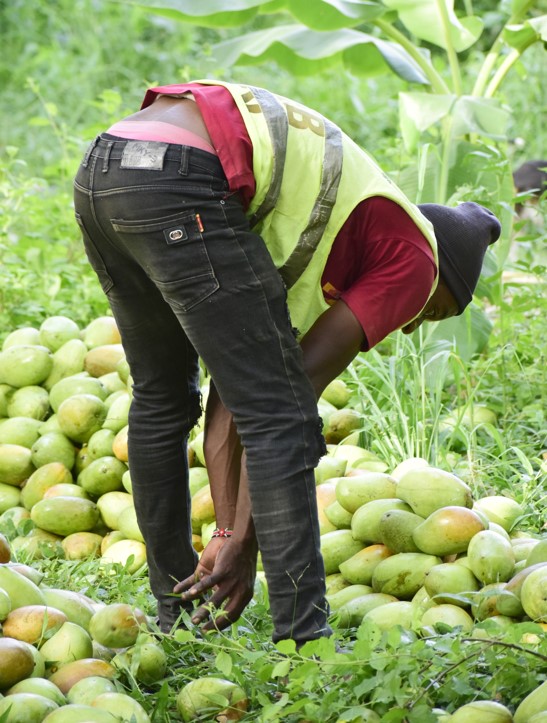 A man gathers mangoes after harvesting in Kumbi Village, Tana River County. (Photo: Farhiya Hussein)
A man gathers mangoes after harvesting in Kumbi Village, Tana River County. (Photo: Farhiya Hussein)
In 2020, the juice brand Lile was born, under Lile Juice Manufacturers Limited. However, it could not be placed on the shelves immediately as it was not yet certified by the Kenya Bureau of Standards (KEBS); the group needed money for that.
They have since met all the requirements and are waiting for the certificate from KEBS to begin mass production.
The group buys mangoes from farmers at Sh10 apiece, unlike middlemen who pay the same amount for three mangoes.
Juice sales
According to Salma, the juice is packaged in 500ml bottles, each selling for a wholesale price of Sh50.
In a month, the group makes between Sh12,000 and Sh16,000 from their sales.
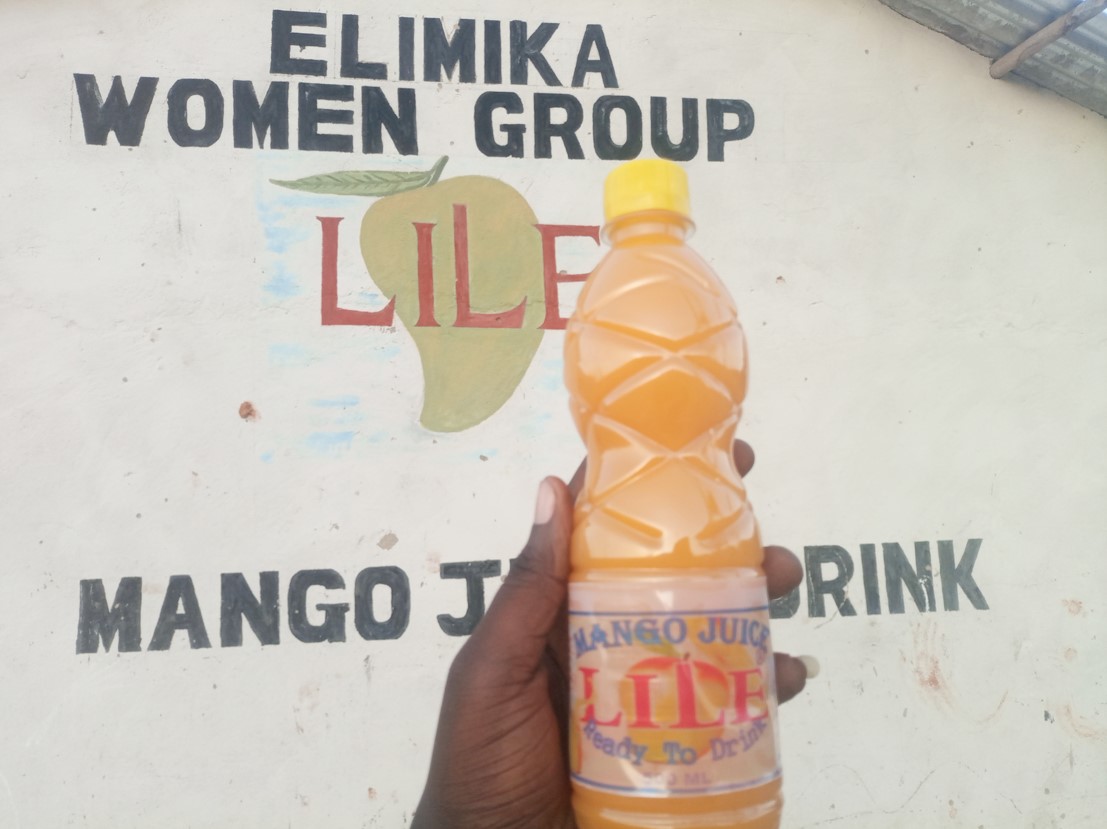 A 500ml of the Lile mango juice produced by the Elimika Women Group in Kumbi Village, Tana River County. (Photo: Farhiya Hussein)
A 500ml of the Lile mango juice produced by the Elimika Women Group in Kumbi Village, Tana River County. (Photo: Farhiya Hussein)
They mainly sell the juice at local events as they are not yet officially authorised to trade their products in shops.
"We have been producing about 100 bottles a day just for those who are interested and for exhibitions, though we have the capacity for more,” Salma said.
Small-Scale Irrigation and Value Addition Project has given the group a machine capable of crushing two tonnes of mangoes every 24 hours.
As the next mango season approaches, the group hopes to have received the KEBS certificate as they prepare to hit the market.
"We are looking for partners to help us with package branding and marketing because we believe we have the best product for the market," Salma said.
The group aspires to start making pulp for sale to bigger companies and is training young women to inherit the project and move it further.
"We are aging. Some of the people we started with have died, but we can't allow the project to die. So we bring our children on board and train them," said Malika Salima, the group's treasurer.
The Galole Fruit Processing Factory, which farmers had pegged their hopes on, remains a white elephant.
"More than Sh300 million has been spent on that plant but is yet to grind even a ton of mangoes," said Hassan Alamin, a farmer.
Tana River's Trade Executive Yahya Ali said the county is determined to help farmers develop better products for the market.
He said the county government is ready to help groups like Elimika Women’s Group through training on branding so that their products can compete favourably.








